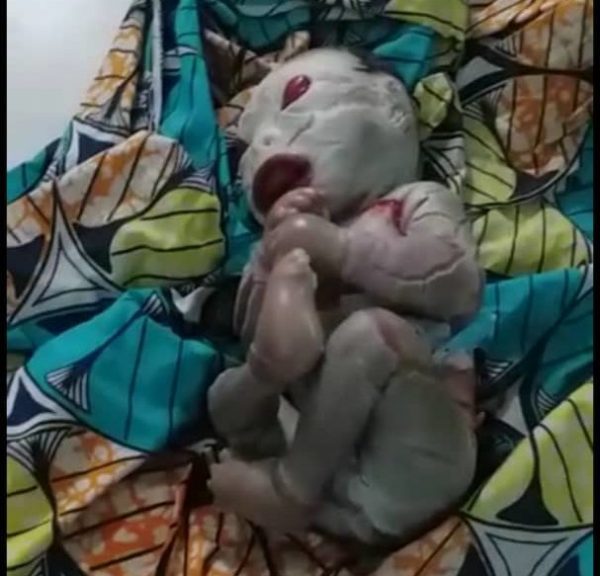

A baby with a rare condition, Harlequin-type ichthyosis, has been born in Borno State.
The child was delivered on Monday at the Umaru Shehu Hospital, Maiduguri, Borno State.
There was said have been confusion and commotion in the hospital following the birth of the baby.
They affect the shape of the eyelids, nose, mouth, and ears, and limit movement of the arms and legs. Restricted movement of the chest can lead to breathing difficulties. These plates fall off over weeks. Other complications can include premature birth, infection, problems with body temperature, and dehydration.
Harlequin-type ichthyosis is due to mutations of the ABCA12 genes. It is inherited from a person’s parents in an autosomal recessive manner. Diagnosis is often based on appearance at birth and confirmed by genetic testing. Before birth amniocentesis or ultrasound may support the diagnosis.
There is no cure. Early in life constant supportive care is typically required. Treatments may include moisturizing cream, antibiotics, etretinate, or retinoids. It affects about 1 per 300,000 births. Both sexes are affected equally commonly. Long term problems are common. Death in the first month is relatively common. The condition was first documented in 1750.
Newborns with harlequin-type ichthyosis present with thick, fissured armor-plate hyperkeratosis. Sufferers feature severe cranial and facial deformities. The ears may be very poorly developed or absent entirely, as may the nose. The eyelids may be everted (ectropion), which leaves the eyes and the area around them very susceptible to infection. Babies with this condition often bleed during birth.
The lips are pulled back by the dry skin (eclabium). Joints are sometimes lacking in movement, and may be below the normal size. Hypoplasia is sometimes found in the fingers. Polydactyly has also been found on occasion. In addition, the fish mouth appearance, mouth breathing, and xerostomia place affected individuals at extremely high risk for developing rampant dental decay.
Patients with this condition are extremely sensitive to changes in temperature due to their hard cracked skin, which prevents normal heat loss. Respiration is also restricted by the skin, which impedes the chest wall from expanding and drawing in enough air. This can lead to hypoventilation and respiratory failure. Patients are often dehydrated, as their plated skin is not well suited to retaining water.
No comments:
Post a Comment